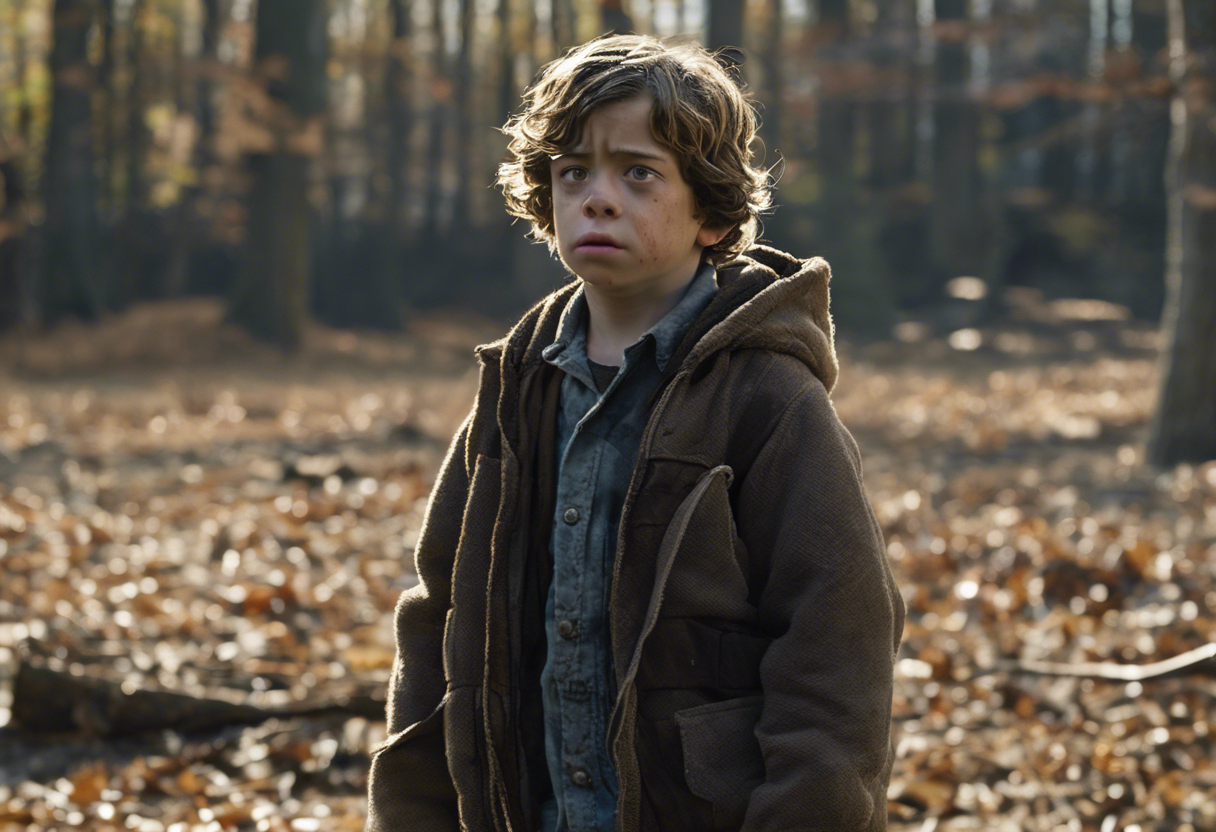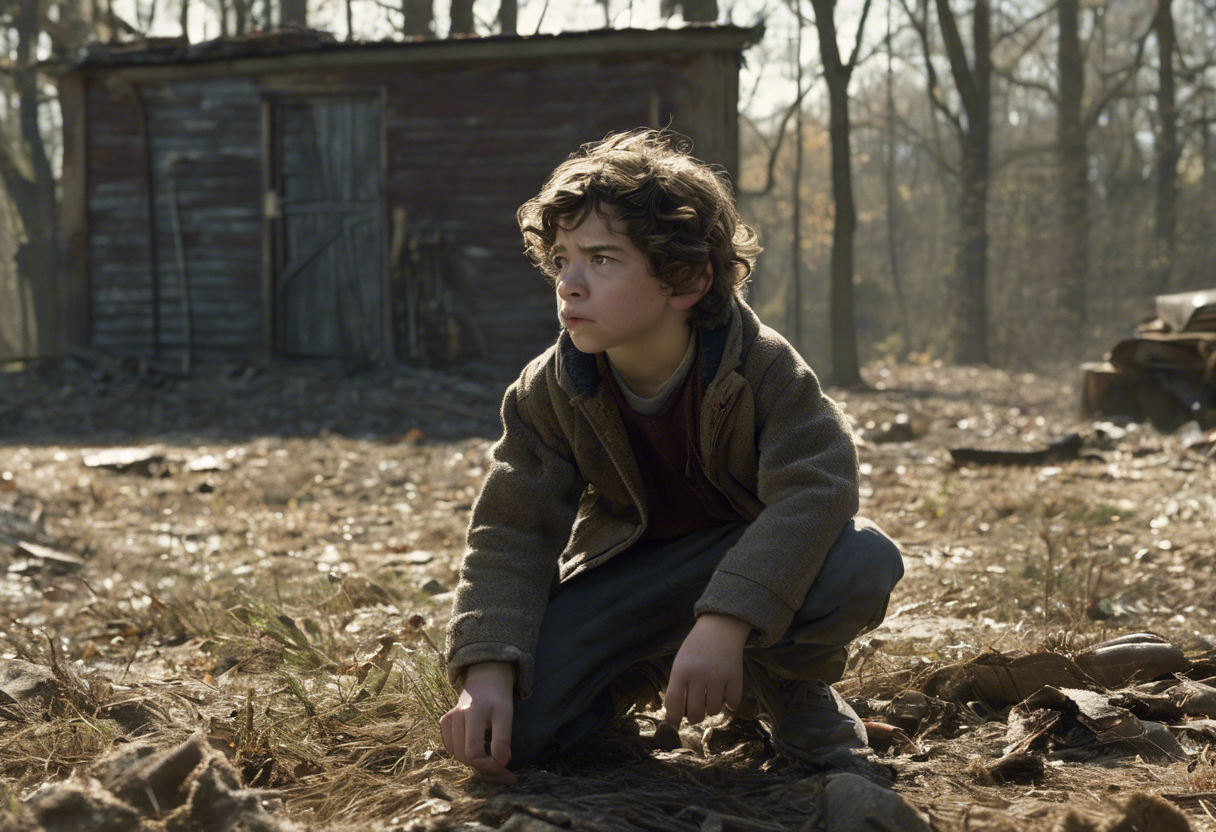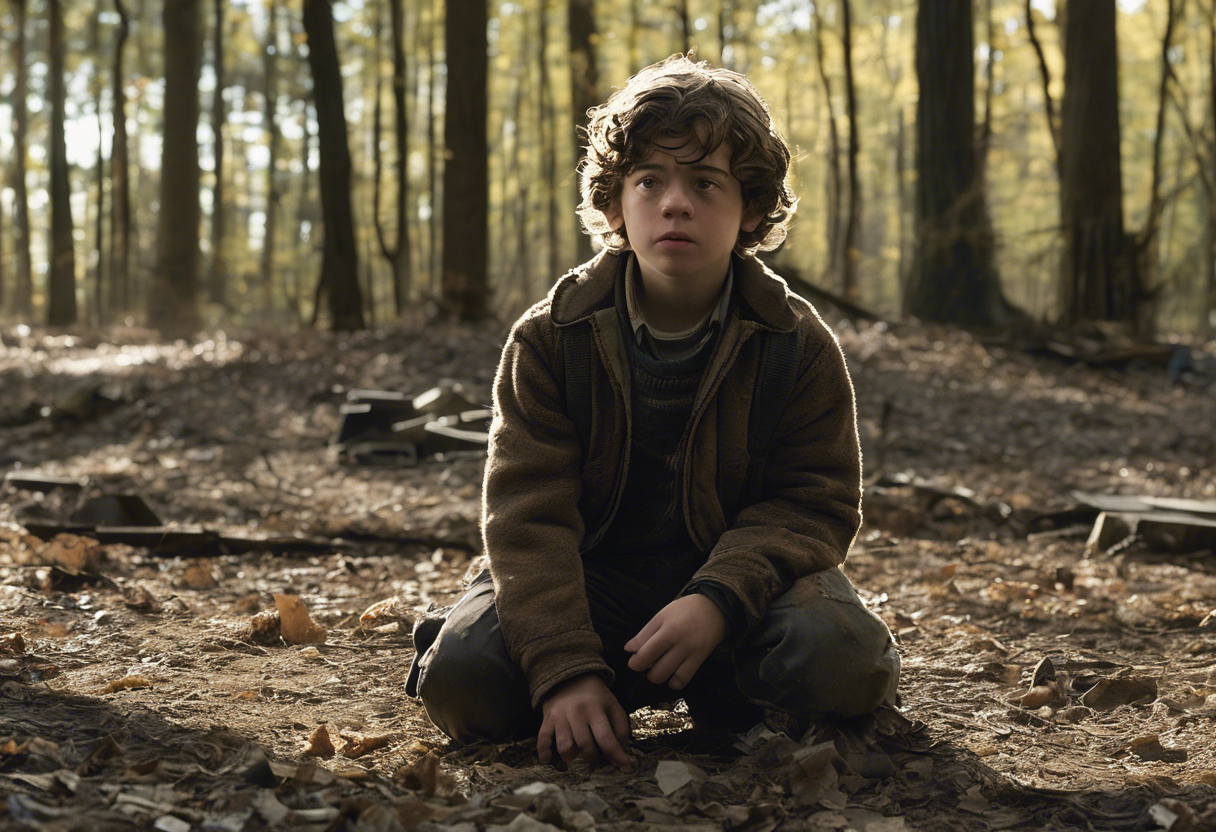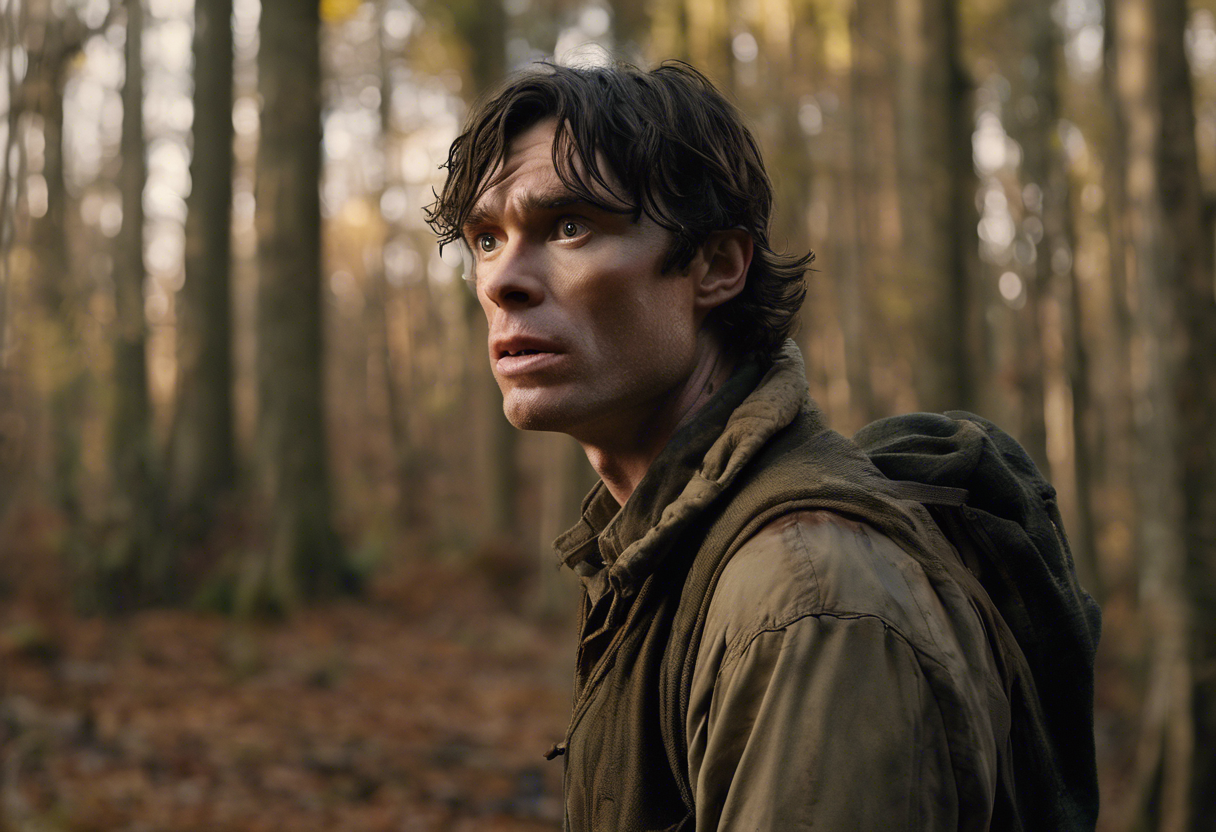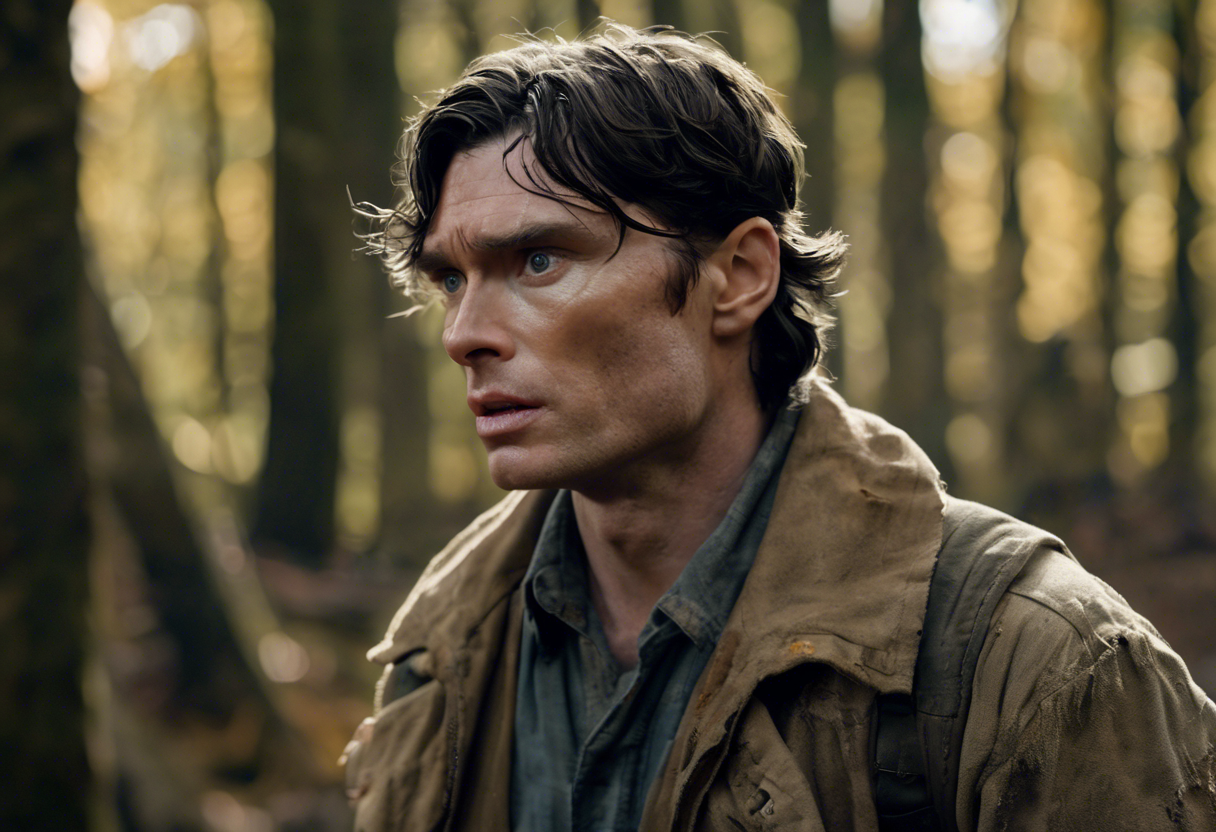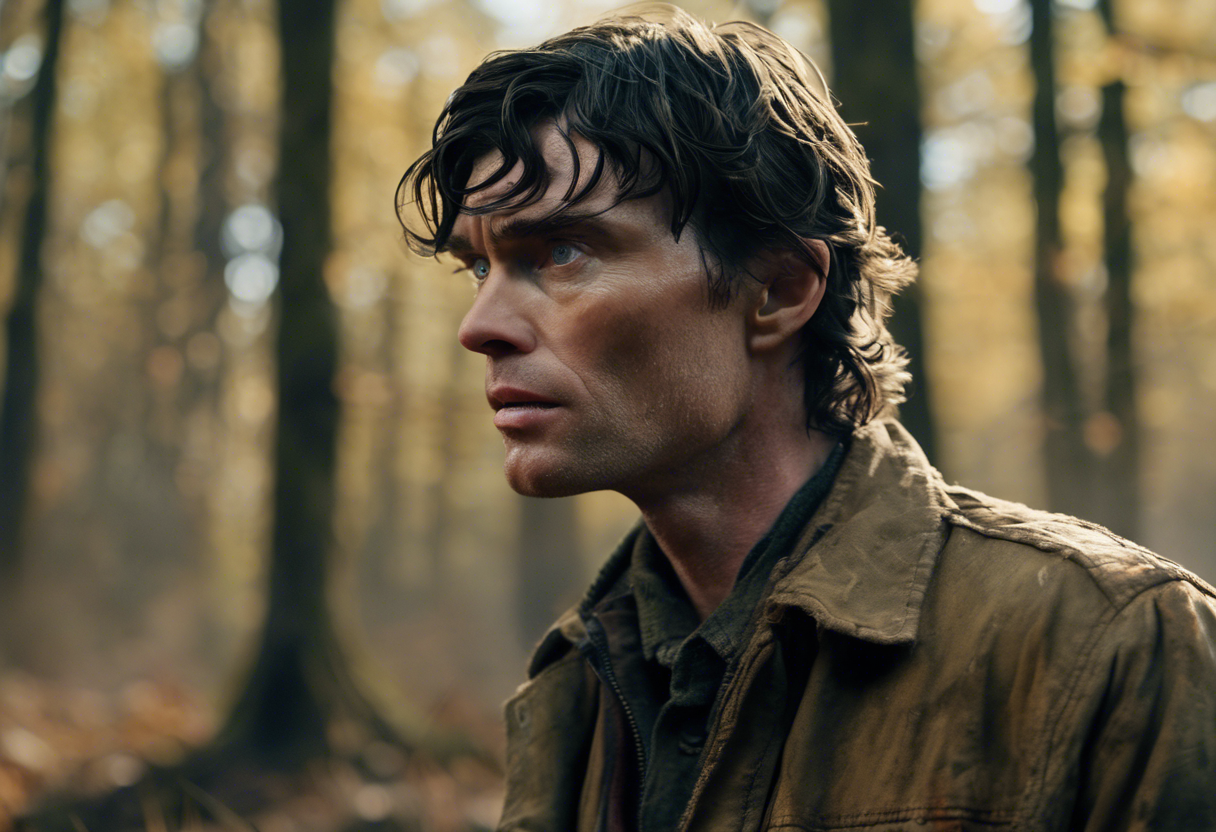Contents
Introduction
Marcus Abbott, portrayed by Noah Jupe, is a central character in the critically acclaimed thriller films A Quiet Place and A Quiet Place Part II, directed by John Krasinski. Created as the middle child of the Abbott family, Marcus navigates a post-apocalyptic world where monstrous creatures with extremely sensitive hearing have taken over, forcing humans to live in near-complete silence to avoid detection.
Marcus’s backstory is deeply intertwined with the tragic events of the first film, where he survived the initial onslaught of the creatures and witnessed his father’s sacrifice to save him and his sister Regan. This experience shapes his character and defines his role in the narrative as a vulnerable yet resilient figure.
Marcus’s defining traits include his strong sense of duty and responsibility, particularly towards his family, which aligns with his ISFJ (Defender) personality type [2]. He is loyal, dedicated, and often puts the needs of his loved ones above his own. Despite his fears and anxieties, Marcus proves himself to be resourceful and brave as he works alongside his family to outsmart the creatures and protect each other.
Role in the Story
In A Quiet Place, Marcus is part of a family learning to adapt to a dystopian setting where silence is the key to survival. He struggles with the pressure of living up to his father’s expectations and dealing with his own fears. After his father’s death, Marcus continues to face numerous challenges in A Quiet Place Part II.
Marcus’s storyline in the sequel is marked by his repeated mistakes and impulsiveness, which often jeopardize his family’s safety. For instance, he steps into a bear trap set by Emmett, leading to severe injuries that force his mother, Evelyn, to venture out for medical supplies [1][5]. His inability to remain quiet and his accidental noises draw the creatures closer, putting his family in danger. Despite these errors, Marcus has a redemptive moment when he uses the radio signal broadcast by his sister Regan to debilitate an alien, allowing him to kill it and protect his family [1][5].
Marcus’s relationships with other characters are crucial to the narrative. His bond with his sister Regan is particularly significant, as they rely on each other for survival. His interactions with Emmett, a survivor who has lost his family, also highlight Marcus’s vulnerability and the emotional toll of their situation.
Character Analysis
Marcus Abbott’s character is complex and multifaceted, reflecting both his strengths and flaws. His ISFJ personality type and Enneagram Type 6w5 traits make him highly loyal and dedicated to his family, but also cautious and skeptical. Marcus is resourceful and analytical, often using his knowledge to solve problems, but he is also prone to emotional overwhelm and avoidance of conflict [2].
One of the compelling aspects of Marcus’s character is his vulnerability. As a child in a world filled with deadly creatures, Marcus’s fears and mistakes are relatable and humanizing. His character development throughout the films shows him confronting his fears and learning valuable lessons about courage, resilience, and the power of family bonds.
Despite his flaws, Marcus’s loyalty and sense of duty are unwavering. He is willing to protect and care for his siblings, even when it puts him in danger. This selflessness and practical approach to problem-solving make him a strong and reliable protector for his family in the face of extreme danger.
Themes and Symbolism
Marcus Abbott embodies several key themes in A Quiet Place. One of the most significant themes is the importance of family and the bonds that hold them together. Despite the constant threats, Marcus’s actions are driven by his desire to protect and care for his family, highlighting the resilience and strength found in family relationships [3].
The theme of hope in the face of despair is also evident through Marcus’s character. Even in the most dire situations, Marcus finds ways to contribute to his family’s survival, symbolizing the hope that can be found even in a broken world. The film’s use of symbolic elements, such as the radio signal that Marcus uses to defeat the alien, represents the power of human ingenuity and the possibility of finding solutions to seemingly insurmountable problems [4].
Cultural Impact
Marcus Abbott has had a significant cultural impact, particularly in how audiences perceive and relate to characters in survival horror films. His portrayal as a vulnerable yet resilient child has resonated with viewers, making him a memorable and empathetic character.
The character’s reception has been mixed, with some critics and audiences finding his mistakes and impulsiveness frustrating, while others appreciate his relatability and the tension his actions create in the narrative [1][5]. This dichotomy reflects the complexity of Marcus’s character and the emotional investment he elicits from the audience.
Critical Reception
Critics have varied in their assessment of Marcus Abbott. Some have praised his character development and the emotional depth he brings to the story, while others have criticized his ineffectiveness and the tension his mistakes create. The film’s ability to make audiences hate and then redeem a child character is seen as a notable achievement, highlighting the skillful storytelling and character development in the film [5].
The critical reception of Marcus Abbott also reflects broader discussions about character flaws and relatability in horror films. His character challenges the traditional trope of the competent and resourceful child survivor, instead presenting a more realistic and vulnerable portrayal.
Legacy
Marcus Abbott’s enduring appeal lies in his relatability and the emotional resonance of his character. He has inspired discussions about the portrayal of children in horror films and the importance of realistic character development.
As a character archetype, Marcus represents the vulnerable yet resilient individual who finds strength in the face of adversity. His story serves as a poignant reminder of the human capacity for survival and the power of family bonds, making him a memorable and impactful character in contemporary cinema.
References
- https://www.cbr.com/quiet-place-ii-marcus-terrible-survival-skills/
- https://boo.world/database/profile/893652/marcus-abbott-personality-type
- https://humanumreview.com/artefact/a-quiet-place-review
- https://www.youtube.com/watch?v=Z0jKbGKy-nI
- https://screenrant.com/quiet-place-2-marcus-child-dislike-good-reason/

